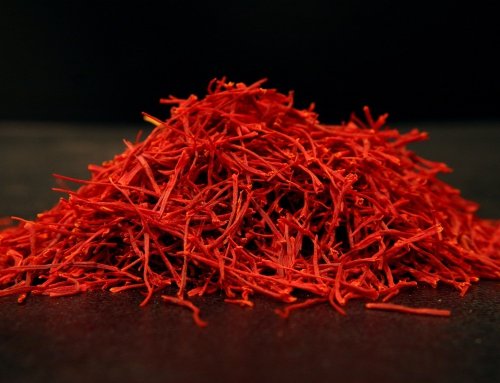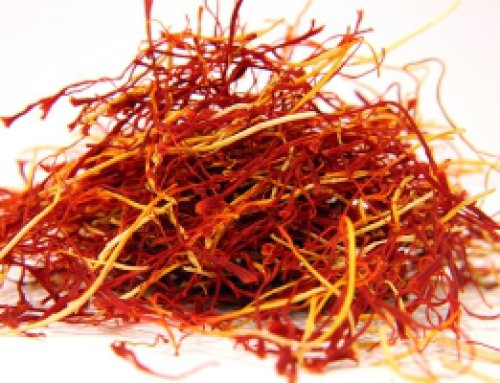How is the market in saffron market since China?
The newspaper Jahan Sanaat, with the headline of the private sector of the market savior, has responded to the response of the Secretary General of the Food Industry Association to the inadequacy of government pricing and wrote:
Perhaps one of the most repetitive topics that is not worthwhile writing is the challenge of regulating the food market. As the authorities are rejected by the absolute indifference of expensive commodities, the prices of high-value goods are increasing continuously. How many years have the food market been managed in the worst way that people every year yearned for good year ago, while each year the ministers promise to improve their livelihoods and keep prices stable. But given the fact that the government usually does not have a program for organizing food and agricultural products markets, the tension does not stop the stock market. Though experts find apparent contradictions in the decisions of the ministries of industry and agriculture as the main source of chaos in the market, some economic activists believe that this is a government intervention and government decisions that disrupt the market. In this regard, we discussed the causes and problems of the food and agricultural products market with the head of the Agriculture Committee of the Chamber of Commerce of Tehran and the Secretary General of the Association of Food Industry Associations. According to Kaveh Zargaran, government distrust of the private sector is one of the main causes of chaos in the market, and government officials must eventually come to a halt and get out of the market …
Continue reading the conversation with “The world of industry” with this active economist.
Since the launch of the Minister of Agricultural Jihad, many experts have criticized his performance in regulating the market. In your opinion, how was the policy of the minister affected by food market disturbances?
From the very first day, from the very day that the Minister of Agriculture questioned the issue, I did not agree with Mr. Hojja’s impeachment. The Minister of Agriculture was one of the most important ministers of the eleventh government. Self-sufficiency in wheat and planning to reduce the dependence of other essential commodities are among the clear points of the Ministry of Agriculture and the Minister. Regarding market regulation, I do not deny the problems, and incidentally, the food industry suffers from some market regulation policies and a change in import tariffs. But the fact is that the Minister of Agriculture is not responsible for all the problems and the main problems are to some rules and interference in the areas of responsibility of the Ministry of Industry and Agriculture Jihad.
Currently, livestock farmers, farmers, and many producers are unhappy with the government’s weakness in announcing late-completion of guaranteed purchasing rates as well as the lack of proper enforcement. What is your plan to deal with your current problems?
Given the fact that wheat production was more than expected in the past year, this made it necessary to provide the necessary financial resources to meet the farmers’ obligations to various farmers. Perhaps the best solution to resolve such problems is to increase the role of the private sector in procurement purchases, which has the necessary legal capacity, and must comply with Article 110 of the Fifth Development Plan, the private sector and cooperatives, at least with regard to the guarantee of wheat purchases, which will provide the bulk of government procurement purchases Included active presence.
How do you think the Economic Council’s delay in announcing new guaranteed purchasing prices will affect the future of the agricultural produce market?
The fact is that the decision to plant an agricultural product needs prerequisites for farmers, one of the most important of which is to know the government’s guaranteed purchasing power. Of course, the delay in announcing a guaranteed purchase price was not such as to have a significant impact on the prices and prices of the next year. If the factors affecting the price fluctuations of agricultural commodities were categorized, the delay in the announcement of a guaranteed purchase in the form that took place had a significant impact on There is no market disruption.
Why has the government been unable to regulate the market for essential commodities during peak periods for several years?
Various factors have been effective in this regard. During the sanctions period, the country faced financial congestion, which in some cases affected the supply of some goods, but the problems that arise in market regulation are the result of some inconsistencies and disregard for decisions taken without sufficient undergraduate work. Gets In this regard, changing import tariffs may be one of the most important reasons for market failure. This approach should change in the government.
Before determining or changing tariffs, the impact of that variable on the economy and livelihood of the people must be checked. Frequent and frequent changes in the determination of tariffs and tariffs are indicative of the lack of coordination between some ministries and government agencies, as well as lack of foresight and timely and unannounced decisions. In fact, the market regulation debate is a very sensitive and scientific issue, and sometimes a wrong decision quickly shows its outcome on the market, and it is usually these people who suffer the most damage from the area. For this reason, it is necessary to examine in full before any decision is taken in this regard.
What do you think the market for products such as meat, poultry, rice, sugar, oil, and some fruits and crops is always fluctuating? And over the years, will we see the price of these products?
Government interventions are occasionally based on legal responsibilities, but in practice it is often seen that these decisions do not have a good impact on the market. Perhaps the most appropriate action for the government is to regulate the market to private sector, in line with the policy of “44” and privatization as well as popularization of the economy, which is one of the important pillars of economic resistance policies. A record has also shown that, wherever the government has reduced the volume of its interventions, the market is calm and balances itself with the principle of supply and demand. Also, government pricing is ineffective, a review of past experience has shown that corruption is causing serious reconsideration as far as possible.
Why does the government not regulate the market for private sector?
This question should be answered by friends in the government, but naturally there is a resistance in all states to reduce their limits. Even in cases where the law also stipulates that a private sector must have a strong presence in decisions or departments, less has been prepared by the government to enforce the law in full. The proposal has already been announced earlier that the government will regulate the market even in a cross-sectional fashion, or in special lobes such as Ramadan or New Year, to the private sector, and if its outcome is positive, it will expand its dimensions. I once again state that Iran’s private sector has become so mature and efficient that it is prepared to take market regulation. Of course, this should be handed over to full authority and policy-making by the private sector, because what we are witnessing at some point in time is the transfer of part of Responsibilities are regulated by the private sector, whose strategy and decisions are taken by the state, and there is no possibility for the private sector to regulate in that market.
Does the government benefit from advice and suggestions from members of the Agriculture Commission for the development of agricultural industry?
As I said, the specialized commissions of the Chamber of Commerce, including agriculture, have a consultative role. However, the level of material in the commission is such that it can help the government make decisions at various levels. The eleventh government’s approach has been to use the views of the private sector and interact with the chambers of commerce, and during this time we have seen this approach. Of course, the impact is not solely dependent on the agricultural commission, and good interactions have taken place in various meetings and meetings with government executives.
Given the experience of the private sector, how has the 11th state interact with the private sector in the past, what has changed?
The eleventh government has been working hard over the last three years to provide space for the private sector more than the past. Reviewing the performance of statesmen shows that, contrary to the past, the protection of the private sector remains unchanged, and the eleventh government believes that the private sector should take greater share of the country’s economic climate, but part of the problem is that the body of government and the country’s bureaucratic system based on Interaction with the private sector is not designed. In fact, there are structural barriers to the serious presence of the private sector in the country’s economy, and their solution is not only possible by the government, and the immutability of the various devices of the country is required. In fact, in order to have a dynamic economy, there should be a strong and capable private sector that is not captured by decisions and directives that are sometimes non-state-owned. For example, the food industry is not excluded from this as one of the country’s leading and successful industries, and it should be noted that if governments listened fully to the private sector in the food sector, the growth of food industry was much higher than what it was. We could now cover the export of food, reduce oil prices or other problems.
What has changed the export of agricultural products in 1995 compared to last year, and what steps have been taken to reduce imports by the related apparatus?
According to statistics, agricultural exports have been rising since the year 94. Agricultural exports up to the end of January are 27.45% and 4.3% more than in the same period of the previous year.
According to the Ministry of Jihad-e-Agriculture Ministry in the first 10 months of this year, four million and 838 thousand tons of agricultural products have been exported from the country. The value of this export was $ 4.76 billion, which caused exports of agricultural sector equal to 74.4 percent of the total weight and 13.24 percent of the total value of exports of non-oil goods in the country. Nevertheless, the trade balance of the agricultural sector has been negative at $ 2.47 billion since the end of this year, which has improved by $ 308 million compared to last year, which is expected. The highest amount of agricultural exports in terms of value was related to the sub-sector of the garden with a share of 47.1 percent, a 23.22 crop, and livestock and poultry 23 percent. This increase in exports resulted from measures by the Jihad Ministry to increase domestic production, especially in the agricultural sector, and to prevent increased imports. The fact is that in the year 92, when the eleventh government began, the trade deficit of the food sector was $ 8 billion, two years ago, this figure fell to $ 5.3 billion, and $ 94.4 billion to $ 3.4 billion The report shows that government policies have been based on reduced imports.
How do you anticipate the outlook for the country’s food industry this year and how do you see the way to improve the export of food products?
The experience of the year 95 shows that the food industry has grown exponentially, and according to customs reports, the total export of food industry in terms of weight and value (dollar) has increased since the same period last year. The value of trade in the food industry of the country is also increasing, indicating an upsurge in the stagnation of trade in this sector and the passage of the trade deficit last year. Unfortunately, in trade with the European Union, this industry has not succeeded in exporting for a variety of reasons, such as high prices for raw materials and the impossibility of competitiveness in international markets. However, I think that the food industry’s outlook for exports in the year 96 is positive. With regard to lifting sanctions and reducing costs such as transport and currency exchange, the power of competition for food exporters has improved slightly. If the current trend continues, given the existing potential, exports of food industry will increase. However, if structural factors like the high cost of production and the high cost of raw materials, the cost of dismantling and the cost of production in our country equaled with foreign and even regional rivals, then there was a flourishing And we had a huge leap in food exports.
Concerning the performance and achievements of the Agriculture Committee of the Chamber of Commerce as well as the Association of Food Industries Association in 1995, if you have any questions.
The Chamber of Commerce, Agriculture, Water and Food Industry last year, like the year 94, was able to play an active role in establishing communication between the private sector and the government. At the Agriculture Commission, we tried to discuss issues related to various sectors related to the Commission, including agriculture, water and food industries, with the presence of related organizations, productive and economic activists, and various categories of government officials.
About the Association of Iranian Food Industry Associations, which is an NGO and trade union organization and as the highest specialized private sector institution in this field, the achievements of the year 95 were quite obvious. In the past year, due to various problems, such as high prices and sometimes lack of some raw materials, we could more or less maintain the production and prevent a sharp drop in exports.
The newspaper also drops titles like; the difficulty of continuing growth in the year 96, the green days of the stock exchange, the alienation of politics, the equalization of Iran’s gas production with Qatar, the withdrawal from the shadow of stagnation, the cat’s felony for East Asia and the tracing of the owners of empty houses Paid.
The young newspaper, on its economic page, said that the government’s economic men had called for a change in the structure of the economy, called the government’s dependence on imports to finance expenditures. Written by:
Today, the market for electoral speeches and debates is hot and due to public livelihoods, the economy is a field that is being considered, and weaknesses are attributed to this government and that government, but the reality is that the defective structure of the economy for governments when Except for dealing with current affairs and several other side work, hence the time has come to think that structural reforms of the economy are needed to enforce economic policies that certainly require national solidarity.
According to the “Young”, the worn-out structure of Iran’s economy is like an old low-end car, which consumes fuel despite several times the efficiency of a new car, while fueling it for the worn car The daily challenge becomes the whole energy of a structure for fueling, hence the time has come to reconsider the structure of Iran’s economy (worn out machine) for implementing resilient economy policies.
If we are to portray the economic structure, then the government needs to earn revenue as the largest player in the economy with high expenses, and this income is due to the sale of oil (currency acquisition) and taxes, while the central bank as a bang The government has its main task of converting the currencies of oil and so-called non-oil exports from the government and other actors to the rials. Now, since the economic structure of the state and the country is defective and the government’s spending is high, the central bank needs to convert the currency to more rivals. It is exacerbated by the demand for currency, while it comes from the official and informal (smuggling) The structure is designed so that the government needs to import foreign currency to meet import costs. In this situation, domestic production is hit by imports and smuggling of consumer goods, and it has no ability to produce more and pay taxes to the government, Will not be created. The above structure suggests that governments should increase their oil exports and their so-called non-oil exports in order to finance their high expenditures, and also to convert the resulting currency at a higher price to the rial, which needs to strengthen the demand for the currency, which means intensifying imports Official and informal goods, which is why in recent decades, despite the import of tens of billions of dollars in goods from the West and the East, there has been no particular occurrence in Iran’s economy, and Iran has not made progress, especially since most of these commodities have been consumer goods.
The concern for leadership in the economy
One of the sectors that, despite the great emphasis of the Supreme Leader on its strengthening but still neglected, is the economy, and although the leadership has, over the past decades, been highly recommended by government officials and non-state actors in the field of economics, but, unfortunately, evidence and evidence It does not take as much work as was done in the economy, and in the year that was named by the leadership of the year “resistance economy, action, action”, we also see that the state of the economy is not so good, but this does not mean that the economy Iran does not have the potential to boost it, but the potential for this is in the cache In there, but realization of this potential will require a revolution in the economy. Yes, the Iranian economy needs a revolution, and every revolutionary must be clear about its task at the stage of the view and action, and know where it is located and where it is going from.
It is not that we are aware of the process left behind by the traditional and the old, and most of its government directors (from the economy to the State Department), from books from the liberal economy schools, and their private sector is derived from rents and loans A government has been waiting for fair progress in the country.
Unfortunately, what we want and do not want, whether they are organized or unorganized, who have taken away their personal and collective interests and their factional interests, have fallen behind the roots of the national economy, and in the stage of thought, as well as action and action that is indifferent to the general policies of the system The implementation of liberal-economy policies is now under the pretext of competing in Iran’s economy.
What is the contribution of people to these economic gains?
Although the government of Hassan Rouhani has recently been proud to grow more than 8 percent in the 9 months of the first year of 1995, this oil-related growth and revenues of oil revenues are counterproductive, and the problem is that macroeconomic indicators can not be related to economic justice It illustrates well, for example, a country can have high economic growth, but the financial revenues generated by this economic growth are dedicated only to the owners of a particular industry and to the high-income sectors of the society and a particular community of people, and the people In this growth, only the role of a simple worker, which is no share of a billion They have not earned the profits the capital owners have earned, and even their wages do not cover the cost of livelihood for their families.
Meanwhile, the minister of economics said that in order to achieve sustainable economic growth and resolve the existing problems, the economy minister needs to reform the country’s economic structures, while having four years to reform the economy.
Ali Tayybnya said on Thursday morning in a meeting with Ayatollah Ghorbanali Dari Najafabadi, the representative of the supreme leader in the central province of Arak, “After a period of stagnation in the country and high inflation, during the past three years, we managed to calm down the economy of the country. We are now in a difficult situation and the effects of the lifting of sanctions are gradually becoming apparent, and we need to take advantage of the current situation in order to further improve economic conditions.
He stressed that today’s problems in the country’s economy are due to economic structures, including dependence on oil, state-owned economy and economic sanctions, and structural reforms must be implemented.
“The pursuit of sustained and sustained economic growth and the realization of resilient economy policies requires operational planning, which the government has started and implemented since the beginning of last year, but it is not enough, and this program should be completed in order to achieve a better outcome,” said the Minister of Economic Affairs and Finance. More seriously pursued and sustained.
Tayebnya said: “This year we have a heavier duty to achieve more economic growth, which is achieved by attracting new investments, increasing productivity and structural reforms, and providing the path to sustainable economic growth.”
Deadlines the structure of the economy for development
Abdu’tabari, an adviser to the economic advocate of the eleventh government, criticized the doubling of taxes over the past five years: Increasing oil production and filling vacant capacity in the oil industry does not necessarily mean the creation of a new job because there were people in the industry who were paid and can not be said. This increase in production has necessarily led to job creation in the industry.
According to the university professor, the existence of extensive corruption causes development opportunities for the country with serious constraints, but all instruments of corruption control are not in the hands of the state, but the main source of control is the corruption of the judiciary, and the necessary rules for controlling corruption in this force have an influential role in this field. .
The economist believes that cutting production costs is another component of supporting production, and in the past five years, the amount of taxation has actually doubled, while the increase in the tax base is not feasible in the short term and still many parts of the country’s economy are exempted from taxation. Is. The reform of the budgeting system is one of the other requirements that must be considered for the reform of the economic structure, and there is no doubt that the current budgeting system does not meet the current needs of the country.
According to Abdeh Tabrizi, today the budget of the country is low and some of the machines only pay salaries and some ministers do not have the tools to implement the policy; on the other hand, in the productivity sector, the predicted goals for the share of productivity in the economy have never been achieved and today The government actually has only 20% of the money invested in the economy, compared to 35% a few years ago.
Tumley added 8 percent to economic growth, Nursultan believes in South Pars, the eleventh government has been slipping into a recession, and 4 million have been unemployed in the carpet industry, among other issues that the paper has paid on its economic page.
source: yjc /ir








Get Social